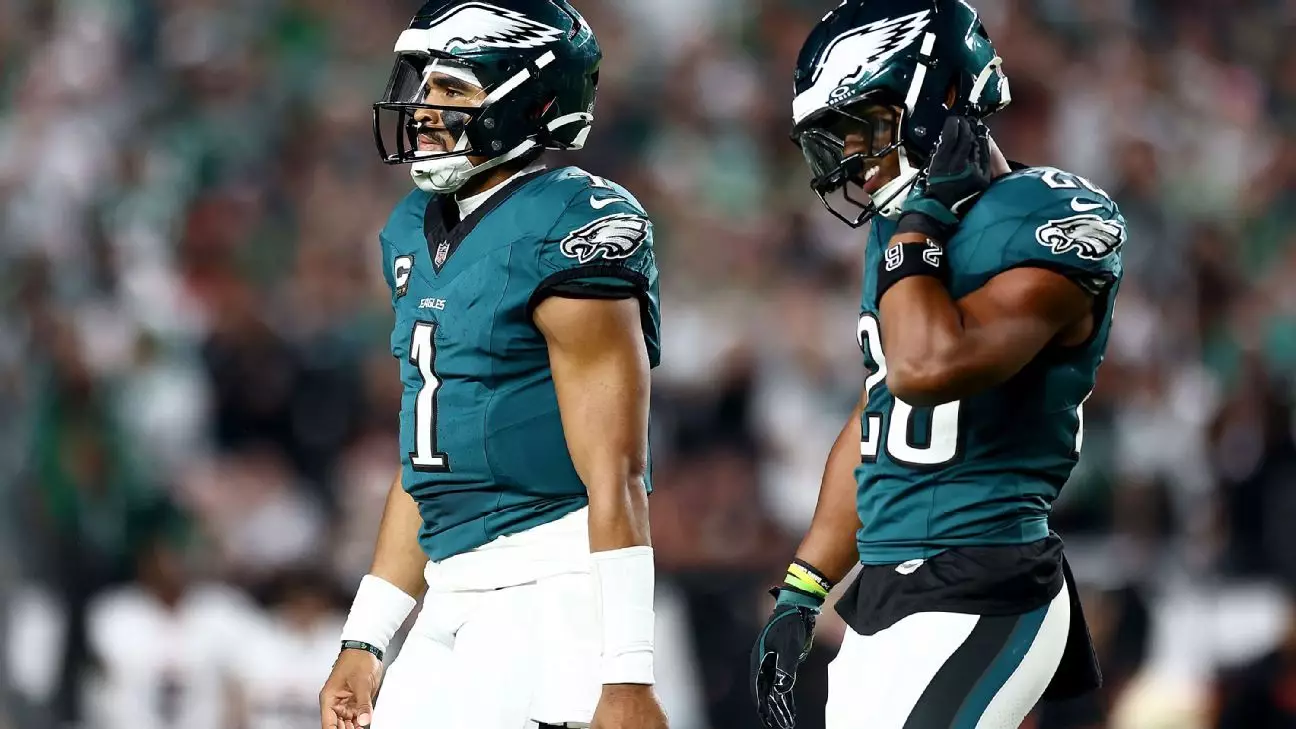In the world of professional football, victories and defeats often come down to a single moment—a drop, a fumble, a missed tackle. The Philadelphia Eagles’ recent 22-21 loss to the Atlanta Falcons serves as a striking example of how one player’s misstep can shift the momentum of the game and the narrative surrounding a season. In this high-stakes matchup, running back Saquon Barkley, despite his accomplishments and potential, found himself at the center of criticism after a crucial dropped pass that could have sealed a win for the Eagles. This incident speaks volumes about the pressure athletes face and the fragility of success in such a competitive environment.
In the aftermath of the game, Barkley took ownership of his pivotal drop, stating, “I let my team down today.” This sentiment underscores an essential principle in sports: accountability. It is easy to point fingers after a loss, but Barkley’s response—a mix of disappointment and commitment to improvement—reflects the mindset of a true leader. Acknowledging one’s mistakes is vital, not just for personal growth, but also for fostering trust and cohesion within a team. While perhaps not the sole reason for the Eagles’ defeat, Barkley’s admission steers the focus from blame to the collective efforts of the team and sets a tone for resilience going forward.
Situational decisions made by coaches can often dictate the outcome of a game, and in this case, Eagles’ head coach Nick Sirianni’s choice to pass on third-and-3 rather than opting for a run looms large in the analysis of the game. With the Eagles holding a narrow three-point lead, the call to throw the ball to Barkley rather than exercise a more conservative running approach invited scrutiny from analysts and fans alike. The underlying math from ESPN Analytics indicates that running the ball—even with a high chance of gaining no yards—provided a statistically safer path to victory than the alternative choices made. Such choices illustrate the fine line coaches tread between aggressive playcalling and conservative game management.
Despite the criticism surrounding the decision to pass, Hurts, the Eagles’ quarterback, reaffirmed his faith in Barkley, stating, “I trust [Barkley] every day of the week to make a play.” This trust is fundamental in a sport where relationships and chemistry dictate on-field success. Hurts’ refusal to second-guess the strategy chosen by Sirianni reveals an essential attribute required for effective leadership: the ability to support teammates even in moments of failure. Such unwavering support not only builds morale but also helps players recover and refocus post-adversity—something that both Hurts and Barkley will need as they prepare for an upcoming game against the New Orleans Saints.
Despite his potential as a game-changing player, Barkley’s performance is marred by the statistics that illustrate his struggle with drops. With 16 drops since the start of the 2021 season, he has led all running backs in this dubious category. This troublesome trend raises questions about concentration and execution under pressure. As he navigates his career, it becomes increasingly vital for Barkley to not only address these technical shortcomings but also to explore the mental aspects of the game that can lead to better performance in critical moments.
As the Eagles regroup for their next challenge, the team’s resilience will be tested. Barkley’s reflection on the incident—”I could sit here and complain…or I could be a professional athlete and go back to the drawing board”—captures the essence of what it means to thrive in professional sports. Transforming disappointment into motivation is an approach that can benefit not only Barkley but the entire Eagles organization. As they prepare for their upcoming games, the lessons learned from this heartbreaking defeat will undoubtedly play a pivotal role in shaping their season’s narrative.
While the Eagles may have faced a setback against the Falcons, the personal and collective growth that arises from such experiences often proves invaluable. The season is long, and it is through overcoming adversity that champions are forged.

Leave a Reply